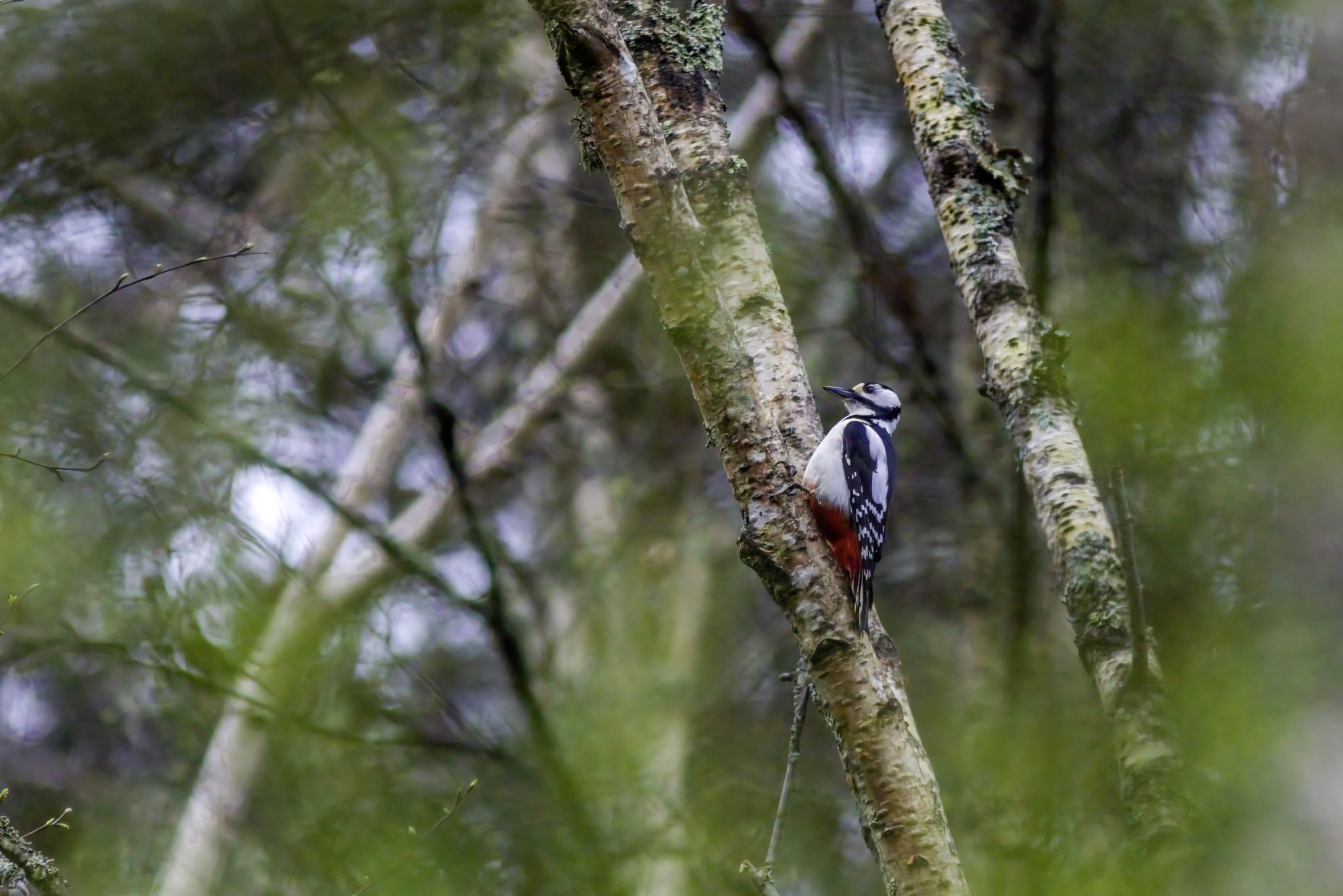🐦 Great Spotted Woodpecker (Dendrocopos major)
The Great Spotted Woodpecker is one of Europe’s most recognizable and widespread woodpeckers. With its bold black-and-white plumage and vibrant red markings, it’s a regular feature of woodlands, parks, and even gardens. Known for its loud drumming and agile tree-climbing, this bird is a true woodland percussionist.
🔍 Identification
- Size: Around 23 cm (9 in) long
- Wingspan: 34–39 cm
- Coloration:
- Black and white body with distinctive white shoulder patches
- Males have a red patch on the nape of the neck
- Females lack the red nape
- Both sexes have a red vent (under the tail)
- Juveniles have a red crown on top of the head
🌍 Habitat & Distribution
- Range: Widely distributed across Europe, parts of Asia, and North Africa
- Habitat:
- Deciduous and mixed woodlands
- Parks, orchards, and mature gardens
- Prefers areas with old trees for nesting and feeding
🔊 Behavior & Ecology
- Drumming:
- Males and females drum on trees (or even poles) to establish territory and attract mates
- The sound is rapid and repeated, like a machine gun burst
- Feeding:
- Diet includes insects, especially beetle larvae, which they extract from bark
- Also eats nuts, seeds, and tree sap
- Will visit bird feeders, especially for peanuts and suet
- Nesting:
- Excavates a hole in dead or decaying tree trunks
- Lays 4–7 white eggs in late spring
- Both parents incubate and feed the young
🧭 Seasonal Activity
- Resident in most of its range
- Some northern populations move south in harsh winters
- More visible in spring due to drumming and courtship behavior
🪵 Interesting Facts
- Uses its tail feathers as a prop to stay upright while climbing
- Has a shock-absorbing skull to protect its brain from drumming impact
- Its tongue can extend far beyond its beak, perfect for snagging insects
- Can be heard more often than seen—especially in wooded areas
🌟 Summary
The Great Spotted Woodpecker (Dendrocopos major) is a charismatic and hardy bird that brings rhythm to the forest with its signature drumming. A master carpenter and clever forager, it’s a favorite among birdwatchers and a welcome visitor to woodland and garden alike. Keep an eye—and an ear—out for this black, white, and red marvel!
Visited 63 times, 1 visit(s) today
Views: 251
